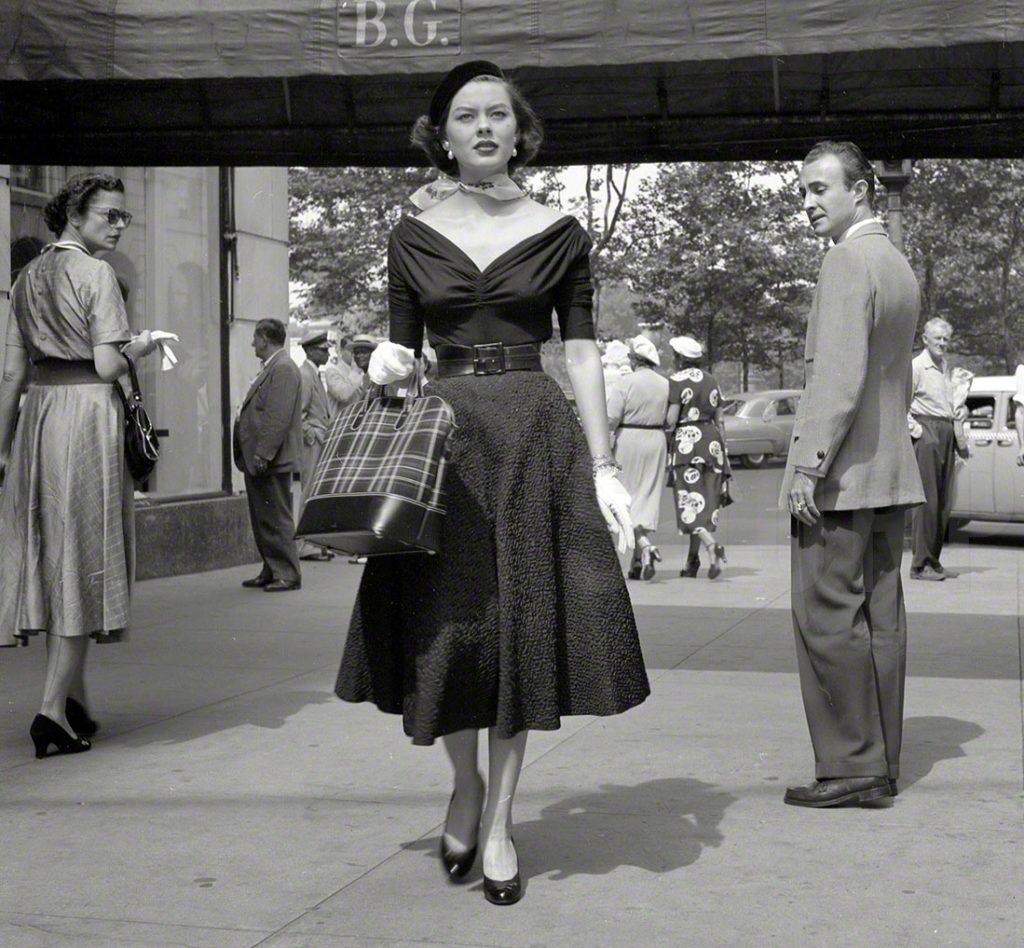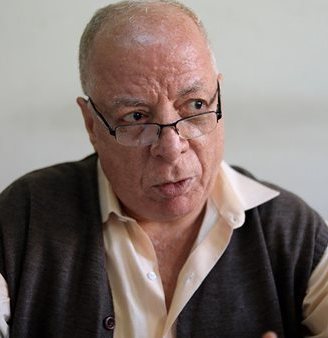
In the first part of this article, I referred to the position of the leader of the Muslim Brotherhood in Sudan, Hasan al-Turabi, towards Western societies, as he expressed it in his letters that he exchanged with his political friend and diplomat, Ali Abu Aqila Abusan, in the mid-1950s, when al-Turabi was a student at the University of London. Here I continue with the import of the rest of the letters.
AL-TURABI CONTINUES to describe his travails with English society, especially the women, whom he described as “the key to corruption.” He states in the seventh letter, written on March 7, 1958:
“In our personal lives, we continue to survive and strive, but it is a struggle to maintain our foothold and stand firm even if we cannot make progress. What do you think of a people used to living in a neighborhood of the pious and the supportive now not only finding themselves abandoned to Satan the ‘whisperer’ and the ‘souls commanding to evil’, but are surrounded by the pitfalls of evil and the snares of Satan from every side”.
And he adds,
“It is enough for me to mention two difficult matters: the first being how to avoid the ‘forbidden gaze’ when you can hardly find any area of public transport, or streets and schools not filled with women who “who are naked even though they are wearing clothes” [1] … and the second being how one can find a place to perform one’s prayers at the appointed times. On these twin rocks the ships of the most steadfast folk are crushed, but the issue is not limited to this. We are therefore glad enough if we just know that a person does not pray, and merely confines himself to committing the ‘forbidden gaze’.
Here we are faced with a man who resembles the eastern society, and one who leaves it for the utopian city where the elite (the ‘supporters’) live, whereas the western society is a ‘swamp of vice’ (those pitfalls of evil) driven by Satan, where the “Women who are naked even though they are wearing clothes” populate every inch of it to the point where it is difficult to avoid ‘the forbidden gaze’ and find a place to perform prayer. This is the traditional view of Western society: a society devoid of spiritual values and relentlessly immersed in materialism! It is the same reflection that Sayyid Qutb made about America which he visited in 1948, and described in the booklet “The America I Saw”, and in which he painted a picture of American society: decadent women, men without a spirit of brotherliness, broken families, and churches that promoted vice.
This is the traditional view of Western society: a society devoid of spiritual values and relentlessly immersed in materialism!
Al-Turabi also described the country of Uncle Sam as “a new branch of the satanic tree and its sullen, malignant plant. This was the ‘ignorant materialism’ that is called European civilization. And this tree has sprouted boughs and branches bearing the features, characteristics and traits of that malignant, satanic plant. There is an ‘English branch’ and there is a ‘French branch’ and finally that tree produced the ‘American branch’ in the New World.”
Al-Turabi then continues his criticism of Western civilization from his sojourn in Britain, and he states in his third letter dated May 30, 1956:
“This is our society (he means the English society) running on tracks today towards the edge of a cliff, powered by nothing but the momentum from the past, and approaching its destruction with certain steps. For its strength is based first and foremost on economic power, where people only care about how they eat and dress. Even the democracy they claim means no more than political freedom, a freedom which only a very small percentage benefits from”.
And he adds,
“The great majority does not care how things turn out, as long as they have their food and clothing. There is no social or spiritual force in society to prevent them from collapsing if their economic forces that herald that end are overwhelmed.”
Clearly, ever since his above comments of 65 years ago, al-Turabi’s prophecy of the imminent end of Western civilization has yet to materialize. This is not to say that Western societies do not suffer from real problems that could lead to the decline of that civilization, since through the course of history societies have always collapsed and cultures have no lack of weak individuals to propel their society towards collapse. But his reference to “the democracy they claim” forms the weakest point in his analysis of the causes of the coming collapse of that civilization.
Al-Turabi was not alone in predicting the rapid demise of Western civilization. Sayyid Qutb preceded him by five years in his book “Towards an Islamic Society”, where he stated that the white man, or Western civilization, was living in a phase of retreat or collapse, and that Islam was the coming alternative. Commenting on Qutb’s hadith, Hilmi al-Numnam wrote the following:
“His conclusion about the decline and bankruptcy of Western civilization and Islam’s takeover of it has not been achieved. Western civilization is still expanding and renewing itself, and many of its values have become universal: values such as freedom, democracy and the well-being of the individual. It is rather most Islamic peoples who are struggling and fighting to enjoy the democracy they see in Western countries.”
And he goes on to say:
“Whoever looks closely at Islamic countries that have enjoyed important experiences in development and advancement, countries such as Malaysia and Turkey, he will see that this is due to the adoption by each of them of the capitalist system in the economy and of democracy as a political system.”
In his sixth letter, dated March 14, 1957, al-Turabi identifies the enemies of Islam and how to defeat them:
“We in this place see the Islamic world under an impenetrable siege imposed on it by global communism, Western countries, mighty Zionism, and disbelief – all of them one and the same religion.Today the land of Islam is the battlefield. And the state of the Muslims derives from the spiritual factor, for “God does not change the condition of a people until they change what is in themselves”.[2]
And he adds:
“As for these western lands, the Muslims had their bouts with them and defeated them, by God’s leave, and it was as it is today, one united hand striking the mighty Roman Empire or the Crusaders. As for the forces of atheism in the eastern countries, the Muslims have defeated an atheist state before, the state of the atheist Persians. As for the Jews, the Muslims were more than a match for their tricks and their plotting with the enemies of Islam, and if we look at the situation the Muslims are in today, we will find it similar to what Islam began with the first time. Our condition will only be solved the same way our ancestors’ s condition was solved: if we keep with Allah we have no conqueror but Him, for Allah will not let the Disbelievers triumph over us.”
If al-Turabi indicates that the ‘enemies of Islam’ are global communism, Western countries and the Jews, after more than three decades since the writing of that letter, he nevertheless succeeded in establishing an example of the Islamic state that he aspired to, and early on declared battle with these enemies when the soldiers of his missionary state chanted their favorite slogan: “America and Russia are close to their doom, if ever I meet with them I must strike!” [3] Here the paradox between illusions and realities becomes evident: al-Turabi himself fell victim to the state of tyranny and corruption that resulted from his long-held ambition!
He failed to present a model of governance that celebrates human dignity, freedom and progress, and adopted an unhistorical model
Al-Turabi was unable to achieve his Salafist dream, a dream where Imam Malik said: “The last of this nation will not be reformed except by that which the earliest of its men reformed it.” He failed to present a model of governance that celebrates human dignity, freedom and progress, and instead adopted an unhistorical model whose culmination and complete rectitude took place in the past. There is no place for it in the future except by going back to that past (the founding time). This is the dilemma that Salafist thought will continue to suffer from in all of its various iterations.
During his stay in London al-Turabi did not seek to understand British society deep enough to form an objective judgment on Western civilization, by evaluating its positive and negative aspects. Rather, he preferred to isolated himself from that society, driven as he was by the legacy of the Western colonial experience that overtook his country. The result was a determination for revenge on that civilization. He demonstrated this in his fourth letter of October 26, 1956, a time when the colonizer had upped sticks and quitted Sudan.
In that letter al-Turabi said this to his friend:
“The truth is, my brother, that whenever I stay here I feel the strength of my urge for the revenge we must one day take on these infidels, and that day is not far off, God willing.”
[1] Al-Turabi is referencing the hadith referring to “Women who are naked even though they are wearing clothes, go astray and make others go astray, and they will not enter the Garden and they will not find its scent” نِسَاءٌ كَاسِيَاتٌ عَارِيَاتٌ مَائِلاَتٌ مُمِيلاَتٌ لاَ يَدْخُلْنَ الْجَنَّةَ وَلاَ يَجِدْنَ رِيحَهَا (Muwatta Malik, Book 48, Hadith 8) (Ed.)
[2] The reference is to Qur’an XIII (al-Ra’d), verse 11: “Lo! Allah changeth not the condition of a folk until they (first) change that which is in their hearts; and if Allah willeth misfortune for a folk there is none that can repel it, nor have they a defender beside Him.” (Ed.)
[3] The chant refers back to the verse quoted in Ibn Ishaq: يا حبذا الجنة واقترابها طيبة وبارد شرابها والروم قد دنا عذابها علي إن لاقيتها ضرابها “How beautiful is Paradise, so fair to draw nigh to, its waters fresh and cold; the Romans are close to their doom, if ever I meet with them I must strike!” (Ed.)



